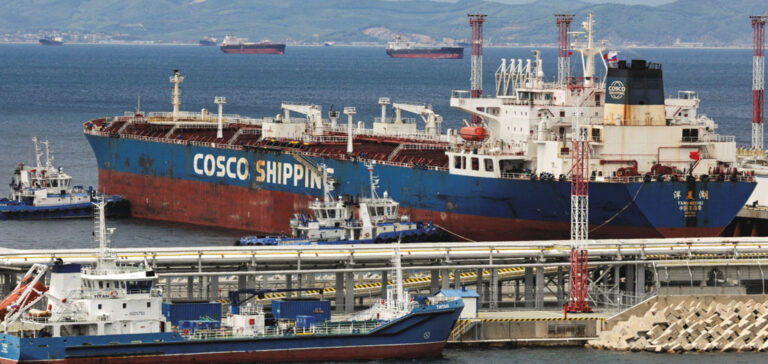Russia’s seaborne crude oil exports have picked up since August, when the government pledged to ease export restrictions agreed as part of a joint action with influential OPEC+ member Saudi Arabia to cut global crude oil supplies by 1.3 million barrels a day to support global oil prices.
Russian crude oil exports to be cut
Despite Russia’s announcement that its crude oil exports would be 300,000 barrels per day below the May-June average until the end of 2023, the data, excluding Russian pipeline exports mainly via the ESPO line to China, showed that seaborne crude oil exports last month were around 150,000 barrels per day below the May-June average of 3.68 million barrels per day.
Urals crude oil important for Moscow
Despite the reduction in the discount for Urals crude oil, Moscow’s main product, compared with Dated Brent, Moscow’s flagship crude accounted for 56%, or 1.97 million barrels per day, of the October total, according to the data. Overall, 43% of Russian crude oil flows were destined for India, while 1 million barrels per day, or 29%, were destined for China. The Urals DAP West Coast India discount to Forward Dated Brent stood at $4.40 on November 1, almost the narrowest margin since S&P Global Commodity Insights’ Platts unit began assessing the spread at $19 in January.
Russian oil successfully redirected to other markets
Spot prices for Russian Urals-grade oil have been trading above the G7 ceiling of $60 a barrel since July 11, but Moscow has managed to redirect its oil to non-Western customers thanks to a growing fleet of parallel tankers and, until recently, a tepid application of sanctions by the USA.
Importing into India and Russia’s role
India imported 1.1 million barrels per day from Urals in October, the same level as in July and the lowest since 2023, but Russia remained India’s main crude oil supplier in October, accounting for over a third of total crude oil imports.
Meanwhile, Russian oil product exports fell by 190,000 barrels a day last month to average 2.12 million barrels a day, according to the data, marking a 17-month low and down from a post-war peak of 3 million barrels a day in March. Overall, Russian crude oil and petroleum product exports averaged 5.64 million barrels per day, the highest since June, and 280,000 barrels per day below pre-war levels, according to CAS data.
In summary, Russia’s seaborne crude oil exports reached record levels in October, even surpassing pre-war levels. Despite the cuts promised by Russia, the data show that exports are on the rise. In addition, exports of Russian petroleum products fell sharply, partly due to a temporary interruption in diesel and gasoline exports.






















